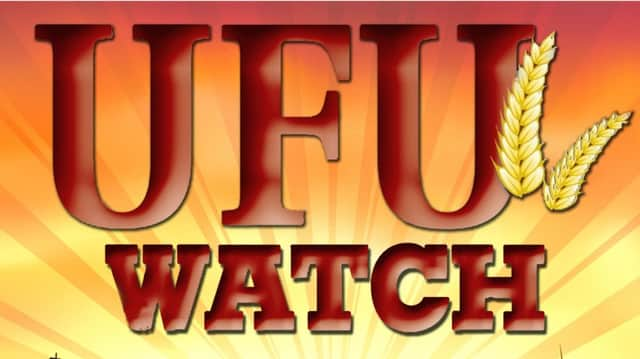UFU calls for action on BVD PI retention


In response to this, the UFU has been engaging with Animal Health and Welfare Northern Ireland (AHWNI) to discuss and target the main barriers preventing BVD eradication.
As of 31st July 2017, there were 18,665 herds in Northern Ireland tagging new born calves as part of the compulsory eradication scheme. Since 1st Jan 2017, 364,750 samples have been submitted of which 2,391 (0.67%) were BVD positive. Approximately 90% of those animals that were retested were subsequently confirmed as Persistently Infected (PI).
Advertisement
Hide AdAdvertisement
Hide AdResults to date suggest that roughly 66% of the animals that were initially positive have been humanely removed. However, this means that around 33% of PIs have been retained. Given that the on-farm source of BVD is positive cattle and subsequent contamination of the environment, the key to the successful eradication of the disease is early removal of PI animals. However, at this stage the actions of around 700 farmers retaining their PI animals is posing an ongoing risk (and extending costs) on the other 18,000 farmers compliant farmers in the country.
Whilst UFU members sympathise with fellow farmers faced with the decision of putting down an otherwise healthy looking animal which if not infected could have been worth up to £400, the reality is that PI animals are not healthy and they pose a significant risk to other animals within your herd.
Anecdotally, members are aware of cases where a farmer has retained a single PI animal in one year and been faced with nine positive calves the following year. Given that each PI can result in multiple additional PI animals and cause other animals to become transiently infected (TI), attempting to rear any PI animal is a false economy given additional feeding costs, vets bills and the fact that around 80% of PI animals eventually die before they reach productive age.
In order to encourage the early removal of PI animals, the UFU advocated for the introduction of the BVD incentivisation scheme under the European Exceptional Aid package which provides £50 for a dairy male, £130 for a dairy female and £160 for a beef animal provided they are removed within four weeks (or six weeks if you want to retest the animal).
Advertisement
Hide AdAdvertisement
Hide AdAt this stage, roughly 52% of all positives are removed within six weeks of being declared positive and about 40% of all eligible animals are being applied for under the scheme (suggesting 23% are being removed without incentive if 33% are being retained). Whilst the scheme has clearly been of benefit to those farmers who have applied to it, the fact that uptake has been relatively low suggests that some form of restrictions are going to be necessary to significantly change retention levels on farms where herd keepers refuse to put down PI animals.
For this reason, the UFU is calling for DAERA to use its powers under the BVD Eradication Scheme Order (Schedule 14.2) to impose herd restrictions on owners that refuse to remove PI calves in a timely fashion to provide an added incentive to remove PI animals promptly, thereby speeding up disease eradication and protecting the healthy cattle and investment made by compliant farmers.
Experience from ROI has shown this action has proven to be very effective in bringing about a substantial reduction in the number of herds retaining BVD PI animals where herd restrictions after seven weeks have been gradually introduced since mid 2015. These have since been tightened to five weeks at the beginning of 2017. This window avoids the immediate unanticipated closure of a herd and provides a sufficient window for the animal to be retested whilst acknowledging the serious bio-security risk posed by the retention of a PI animal.
The herd becomes automatically de-restricted once the PI animal has been removed meaning the duration of the restriction is purely within the control of the farmer. It is hoped that such action in NI will continue to drive BVD towards eradication and that all farmers will reap the rewards for many years to come.